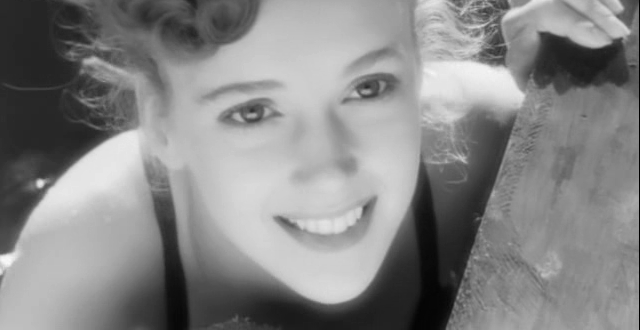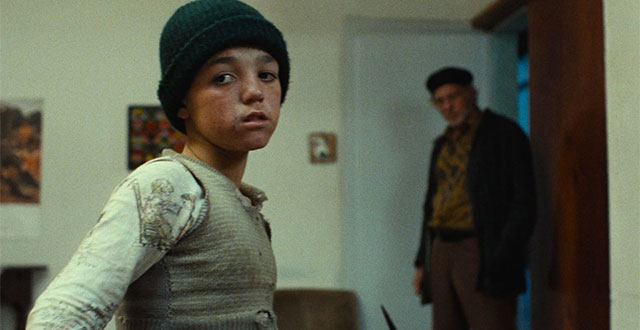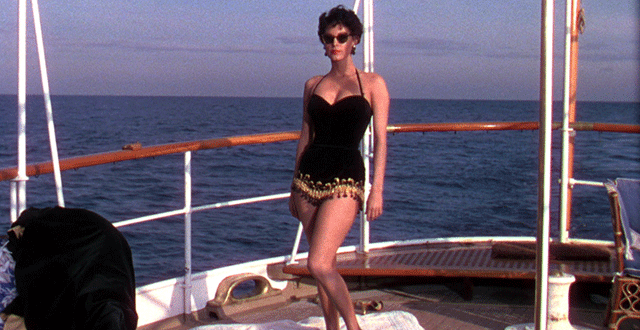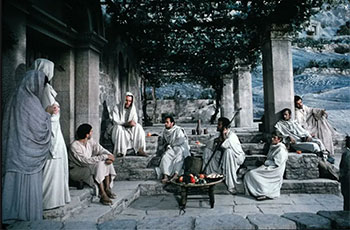News
Out of the Vaults: Renoir’s “The River”, 1951
Meher Tatna
When Martin Scorsese was nine-years-old, his father took him to see Jean Renoir’s film The River. He said later that it would turn out to be one of the formative film experiences of his life. In 2004, when the Criterion Collection released the DVD of the film, in an interview included on it, Scorsese said, “I would say this and The Red Shoes are the two most beautiful color films ever made.” It was Renoir’s first film shot in Technicolor; his nephew Claude Renoir was the lighting cameraman.
Scorsese describes the film best. He calls it “a film without a real story that is all about the rhythm of existence, the cycles of birth and death and regeneration, and the transitory beauty of the world.”
Renoir, son of the painter Pierre Auguste Renoir, was unemployable in Hollywood when he read a review of Rumer Godden’s autobiographical novel, The River, set in India in which she spent her adolescence. For two years he tried to get a film made based on it, and had almost given up when he met a Beverly Hills florist and real estate agent called Kenneth McEldowney who agreed to finance the movie by selling his home and his flower shops. McEldowney sent Renoir to Calcutta to scout locations, and Renoir fell in love with the country. In India, he met a young journalist, Satyajit Ray, with whom he became friendly. When Ray questioned the lack of lead Indian characters in the script, Renoir took that to heart. He and Godden rewrote the script, including a few Indians in the story.
However, money was tight and on top of that, no big Hollywood star would agree to spend five months in India for a pittance. The role was turned down by, among others, Marlon Brando, James Mason, Sam Wanamaker, Glenn Ford, and Van Heflin. Renoir had to cast a number of unknown actors and amateurs in the film; it was the first and only film for Patricia Walters and Thomas E. Breen, two of the leads.
The story is the coming-of-age of a young girl growing up in India. Harriet (Walters) and her family live on the banks of the Ganges river. Her father (Esmond Knight) runs a jute mill, and she and her four sisters and young brother live an idyllic life as expatriates within a loving family. Their lives are upended when a neighbor’s cousin, an American veteran with a missing leg, played by Breen, comes to visit. Harriet and her older sister Valerie (Adrienne Corri), and the neighbor’s Anglo-Indian daughter, Melanie (played by Radha), all vie for Captain John’s affections, and the subsequent tensions, jealousies, and heartaches unfold against the backdrop of their adopted country and the languorous river that flows by marking the passage of time and the inevitability of change. Voiceover narration is as poetic in parts as the lushly photographed country.
Renoir’s money woes extended to lack of equipment. His shots are short as he didn’t use dollies. In one of the key scenes in the film, a dance number by Radha, he choreographed it with her moving back and forth in front of the camera so he could get closeups. Once in postproduction, he had to reconstruct the film in editing as the acting of some of the amateurs was not up to par, and reshoots were impossible. He compensated by using a number of vistas of India that he had filmed separately, and by happy accident, the country becomes a character in its own right, with scenes of the teeming bazaar with its stalls of colorful merchandise, the Diwali Festival of Lights, and the worship of the goddess Kali, the snake charmer and the monkey organ-grinder surrounded by the rapt villagers, and the army of workers carrying bales of jute to the mill, all adding visual delight to the film for a unique cinematic experience. The river itself is seen at different times of the day – the fisherman plying their boats in a colorful cacophony during the day to the shimmering water in the night scenes, particularly one in which a distraught Harriet steals a boat and sets off in it. The Technicolor processing alone took five months.
It is noteworthy that the long struggle going on in India at the time, with its fight for independence from the British Raj which was achieved in 1947, has no part in the story.
A couple of side notes. Breen, son of Joseph Breen, who led the Motion Picture Producers and Distributors of America, and was chief censor of US films, was a real amputee who had served in the US Marine Corps in Guam in 1944. Knight, who plays the father, had lost an eye in real life in WWII, just as he has in the movie. Nora Swinburne, who plays the mother, was Knight’s real-life wife.
The River won the International Award at the Venice Film Festival in 1951. It is also on Scorsese’s top 10 list of his favorite films. Wes Anderson has said it influenced his decision to make The Darjeeling Limited in India in 2007 after Scorsese showed him the film.
The film was restored by the Academy Film Archive, in association with the BFI and Janus Films, with funding provided by the Hollywood Foreign Press Association and Scorsese’s The Film Foundation. The restored version in all its Technicolor glory can currently be seen on HBO Max with a new title card acknowledging all the partners of the restoration at the start of the movie.
The film was restored from the 35mm nitrate three-strip original camera negatives and a 35mm IB Technicolor print lent to the project by Scorsese. From the restored track negative and the original three-strip negatives, a fully corrected answer print was made at Cinetech, a lab in Valencia, California, specializing in archival restoration. 35mm black-and-white fine-grain master positives (or separation masters) were then made from the three-strip negative, as well as a combined color interpositive. Finally, from the new black-and-white fine-grain masters, a recombined 35mm color internegative was created. The new internegative and restored track negative will be used to make all additional prints.
COMMEMORATING 30 YEARS OF TFF
The literary critic and novelist Lionel Trilling made an observation in one of his essays that’s stuck with me over the years—younger people in the America of the 50s, he wrote, had developed an unfortunate habit of reflexively equating reality with evil. This habit of mind persisted for many years. If it seems to be fading away, that’s because no one at a moment like the one we’re in now can afford to be casually hopeless or pessimistic.
Delmer Daves was an American artist who was passionately invested in dramatizing the good in people. It’s a truism that the villain is always the most interesting character in a narrative. Not so in Daves’ films, where the villains are sadly one-dimensional because they are so single-minded and unimaginative, grievance-driven intruders in the creative richness shared by mutually caring, respectful and merciful people. Daves always risked tilting into naiveté, but he had a genuine vision of community, and that’s a rarity in cinema.
The Film Foundation has worked with UCLA to restore one of Daves’ films, and one of his most unusual. Starting in the 50s with Broken Arrow, about the American betrayal of Cochise and the Apaches, Daves became primarily known as a director of westerns, and he was a westerner through and through. The Red House, made in 1947, is more of an “eastern,” with an ambience and certain thematic and narrative trappings (a man haunted by his secret past, a farm that borders a forbidden forest) redolent of Nathaniel Hawthorne’s tales. The film was made independently, the first production from a company formed by Sol Lesser and the film’s star Edward G. Robinson. Robinson and Judith Anderson as his sister are remarkable, but it’s the presences and most of all the faces of Allene Roberts, who made her film debut here, and Lon McAllister that ground the story, Roberts in particular—the threats to her fragile, tremulous innocence and simplicity give the film real force. For many years, The Red House languished in public domain hell and was available only in substandard copies. It’s a gift to see it fully restored, and to be able to appreciate its great visual beauty—a hallmark of Daves’ cinema. As is his fierce commitment to dramatizing and incarnating the good in people.
- Kent Jones
Follow us on Facebook, Instagram, and Twitter!
THE RED HOUSE (1947, d. Delmer Daves)
Restored by the UCLA Film & Television Archive and The Film Foundation, with funding provided by the Hobson/Lucas Family Foundation.
Home viewing: Martin Scorsese’s World Cinema Project No. 3
Michael J. Casey
In 1990, Martin Scorsese brought together a band of cinema enthusiasts to protect motion picture history by creating The Film Foundation (TFF) — a bridge between Hollywood studios and archives. Its mission: Preserve America’s visual art form for future generations. Thirty years in and 850 restorations later, TFF remains a beacon of hope in a myopic industry.
But American borders couldn’t contain Scorsese’s catholic tastes. In 2007, he established the World Cinema Project (WCP) to focus on the works made in countries not typically associated with cinema. To date, 42 films from Africa, Asia, Eastern Europe, Central America, South America and the Middle East have been rescued, restored, preserved and exhibited for a global audience. And on Sept. 29, The Criterion Collection releases the latest box set of cinematic discoveries, Martin Scorsese’s World Cinema Project No. 3: After the Curfew (Indonesia), Dos monjes (Mexico), Downpour (Iran), Lucía (Cuba), Pixote (Brazil) and Soleil Ô (Mauritania).
Of the six, Pixote is the most familiar to U.S. viewers as it garnered a bevy of acclaim and awards upon its release in the early 1980s. It was director Héctor Babenco’s third feature, made after authorities shut down the documentary he was working on about abandoned children stuck in the reform school system. No biggie: Babenco took what he’d seen and translated it into a scripted narrative à la William A. Wellman’s Wild Boys of the Road and Luis Buñuel’s Los olvidados. The result is a powerful work that feels completely authentic, no matter how grisly the story gets.
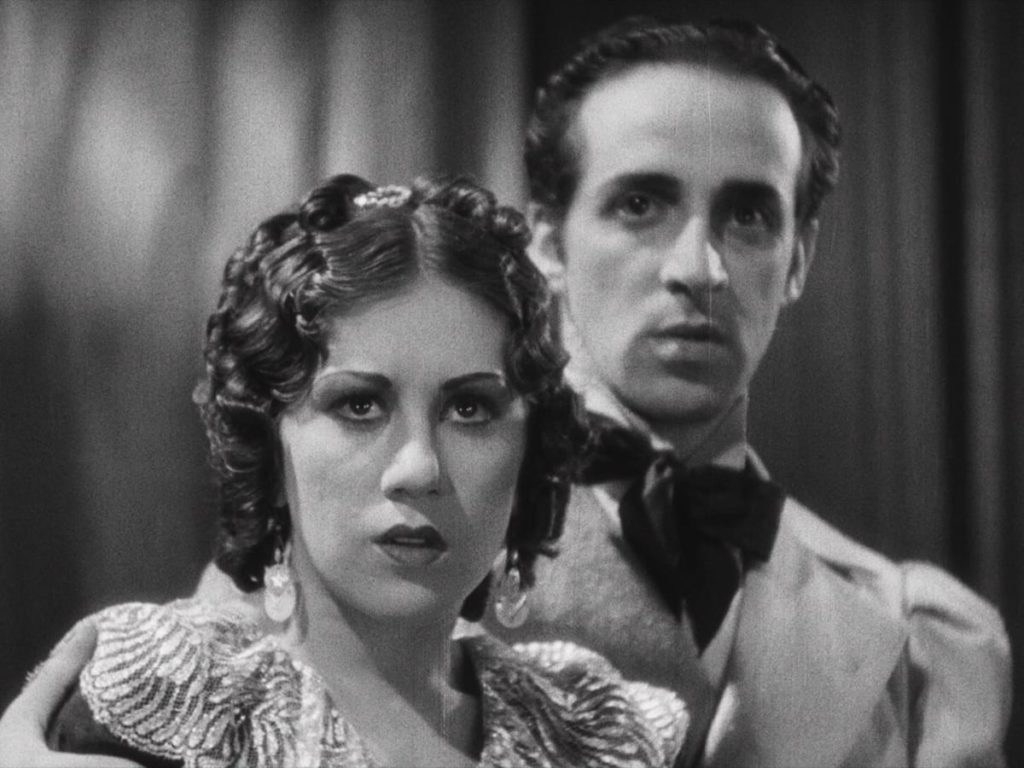
Probably the least familiar movie in the set is the 1934 Mexican melodrama from Juan Bustillo Oro, Dos monjes — a movie unknown to Scorsese when the title was offered for restoration. But Dos monjes’ exemplary blending of contradicting narrators, gothic horror, expressionistic photography and exaggerated set designs proves that what we don’t know could fill the sky.
Cinema is everywhere, and Scorsese’s work is never done. In 2017, TFF partnered with UNESCO, Cineteca di Bologna and the Pan African Federation of Filmmakers for the African Film Heritage Project — an initiative to locate and preserve 50 classic African films.
Soleil Ô from director Med Hondo was the first film restored under the banner, and the film is a revelation. Blending animation, documentary and narrative, Hondo follows an African immigrant (Robert Liensol) looking for work in an intolerant France, one that refuses to look at him, let alone employ him, while simultaneously stripping him and his country for parts. “I am bleached by your culture,” he muses.
Made over three years for $30,000, Hondo describes Soleil Ô as therapy: “For everything that disturbed me in both my physical and moral life, after all that I’d been through, that others had been through.” Not long after the restoration of Soleil Ô, Hondo died at the age of 82. Thankfully, his experiences and images live on.
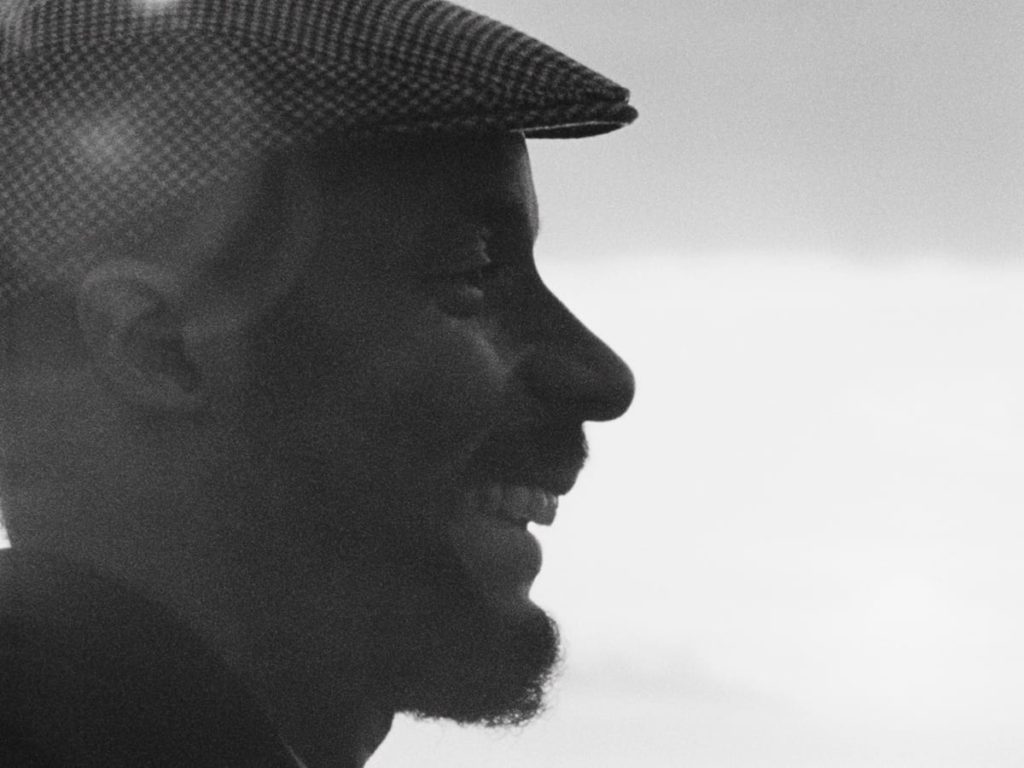
Each of the six films included in Martin Scorsese’s World Cinema Project No. 3 are new, restored 4K digital transfers complete with introductions from Scorsese, interviews with filmmakers and scholars, and a substantial booklet collecting essays on each film.
COMMEMORATING 30 YEARS OF TFF
The Film Foundation has facilitated the restoration and preservation of two films by Joseph L. Mankiewicz. One of them, All About Eve, is one of the enduring classics of world cinema. The other, The Barefoot Contessa, restored by UCLA, is certainly well known but it’s less often discussed now. My wife and I took a fresh look at it about a month ago and we were both amazed and moved.
There have been many Hollywood movies about Hollywood that operate under the pretense of frankness but that, in the end, are nothing of the kind. I’m a fan of Vincente Minnelli’s films, but The Bad and the Beautiful and Two Weeks in Another Town, wild melodramas set in the milieu of Hollywood (and Hollywood on the Tiber), have a refracted, prismatically re-directed view of Hollywood itself. The same is true of George Cukor’s 1954 remake of A Star Is Born, a film that I love. But The Barefoot Contessa—shot in stunning Technicolor by the great Jack Cardiff—really stands alone, because it looks directly into the face of the ruthless exploitation of women practiced by powerful men in and around the world of big budget moviemaking. Ava Gardner’s Maria Vargas is courted by one filthy rich man after another (played by Warren Stevens, Marius Goring and Rossano Brazzi), each of whom promises glory but delivers possessiveness and a increasingly refined forms of debasement. It’s impossible to overestimate how rare such frankness and brutal honesty were during the high Hollywood era. Most movies made after the establishment of the production code, even great ones, fell back into soft cushions of decorous gentility when it came to wealth and power, and the ruthlessness was assigned to a few bad apples. Here, it’s the way almost everyone operates. It’s interesting to compare the publicists played by Jack Carson in the Cukor film and by Edmund O’Brien in The Barefoot Contessa. Carson’s character is judged to be mean and crass…by Charles Bickford’s kindly studio head! O’Brien’s unctuous, sweaty Oscar veers in the direction of whoever holds the power in any given situation, and for him, the virtues of honor, fidelity and respect espoused and practiced by Humphrey Bogart’s director are sentimental holdovers and beside the point. And there is absolutely no gentility whatsoever in Mankiewicz’s portrait of the jet set gathered around the roulette tables and the watering holes of the Riviera. They are lowlifes in fashionable dress.
At the emotional center of The Barefoot Contessa is Bogart’s Harry Dawes, the man who makes Maria a star fully knowing that it will ultimately lead to her destruction. No other actor could have played the role. From the 40s on, Bogart was one of the greatest artists in movies, and this is one of his most beautiful and heartbreaking incarnations of broken disenchantment.
- Kent Jones
Follow us on Facebook, Instagram, and Twitter!
ALL ABOUT EVE (1950, d. Joseph L. Mankiewicz)
Preserved by The Museum of Modern Art with funding provided by The Film Foundation.
THE BAREFOOT CONTESSA (1954, d. Joseph L. Mankiewicz)
Restored by UCLA Film & Television Archive in cooperation with MGM Studios with funding provided by The Film Foundation and Robert B. Sturm.

